Sunday Morning Conversations About Race
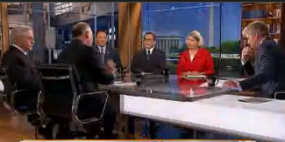
It was race relations Sunday on the morning network shows where, yet again, the screens were filled with lone African American panelists talking about race with a lot of white folks. In a variation on Rachel Sklar’s recent analysis on the Bechdel Test for the Media, the rare instances where African American panelists did appear together on Sunday morning, they were talking about race.
On Meet the Press, it was the Urban League’s Marc Morial who lead the race talk with his white counterparts David Brooks, E.J. Dionne, Anita Dunn and CNBC’s Rick Santelli chatting with David Gregory. Morial put the blame on Andrew Breitbart, saying Shirley Sherrod’s story was a story of reconciliation. Dunn blamed a “false meta-narrative” attacking the National Association for the Advancement of Colored People while Dionne and Brooks played their middle-of-the road roles alternatingly blaming both conservatives and liberals.
In a telling moment about the role of the African American panelist, Morial tried to turn the conversation to larger policy and economic questions but Gregory dragged him back to the issue of race, asking him to react to Sen. Jim Webb (D-Va.) and his comments on affirmative action. Even when Santelli wanted to talk about Morial’s larger economic policy question, Gregory cut it off. In the next segment, Morial was the only panelist not asked a question about economic problems and was asked a question in the final segment only to comment on Rep. Charlie Rangel (D-.N.Y), the African American head of the House Ways and Means Committee facing ethics problems.
The race conversation on This Week fell on the shoulders of regular Donna Brazile who was the sole non-white voice on a panel that included Cokie Roberts, Sam Donaldson, the Weekly Standard’s Stephen Hayes and host Jake Tapper.
How do we know that Brazile’s job was to talk about race: she was asked the first and last question, although Roberts got the last word.
Saying the White House continued to deny they fired Sherrod, Brazile said Sherrod’ s story was “a story that is just as amazing as the hymns of Amazing Grace. It was a story of redemption.” Roberts quickly shifted the majority of the blame on the White House, while Donaldson was more than happy to spread the blame around to Breitbart and Fox News. Hayes ably defended the conservative press and said Sherrod slipped into “easy allegations of racism” when talking about conservatives and the health care debate.
Over at Fox News Sunday, the race discussion was handed to Rev. Jesse Jackson after Howard Dean schooled Chris Wallace and Fox News about being racist. The panel had Juan Williams stuck talking about race–although he was allowed to talk about other issues–with the regulars Bill Kristol, Mara Liasson, and Britt Hume.
Face the Nation had two African American panelists–with professors and authors Michael Eric Dyson and Cornel West–both there to talk only about race in a segment that included Washington Post columnist Michael Gerson playing the role of the white conservative. An earlier segment included Abigail Thernstrom and Wall Street Journal columnist John Fund discussing the dispute over the Justice Department investigation of the New Black Panther Party and alleged voter intimidation.
On CNN’s State of the Union, the race conversation took place between law school dean Christopher Edley and the New Republic’s John McWhorter. The two African American men again talked about the Sherrod affair, with Edley saying the race was “like waving kryptonite in front of super stars in the media or in politics. Their knees go wobbly. Misjudgments are made. And it has really been shameful.”
Both men said that the conversation over race was complicated by the fact that it is difficult to have conversation because, as McWhorter says, it appears it’s more about “a conversion” where “white America is supposed to realize that the civil rights revolution wasn’t enough, that structural racism, et cetera, still remains prevalent, and that there is still more admitting that needs to be done and probably some sort of second civil rights revolution.”
Race conversations are important and it’s great that African American panelists are showing up on the Sunday shows. But when African American panelists only are allowed to talk about race and the only time two of them appear on screen they are talking about race, there’s a larger problem. When Morial is essentially shut out of the conversation on economics while the white panelists were asked for analysis, it was a telling moment. It probably wasn’t even intentional, but it was stunning nonetheless.
This is an opinion piece. The views expressed in this article are those of just the author.
New: The Mediaite One-Sheet "Newsletter of Newsletters"
Your daily summary and analysis of what the many, many media newsletters are saying and reporting. Subscribe now!
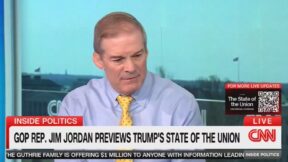
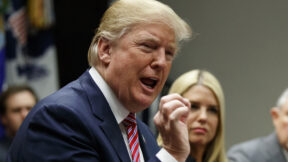
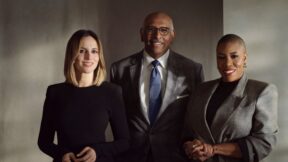
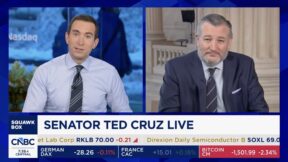


Comments
↓ Scroll down for comments ↓